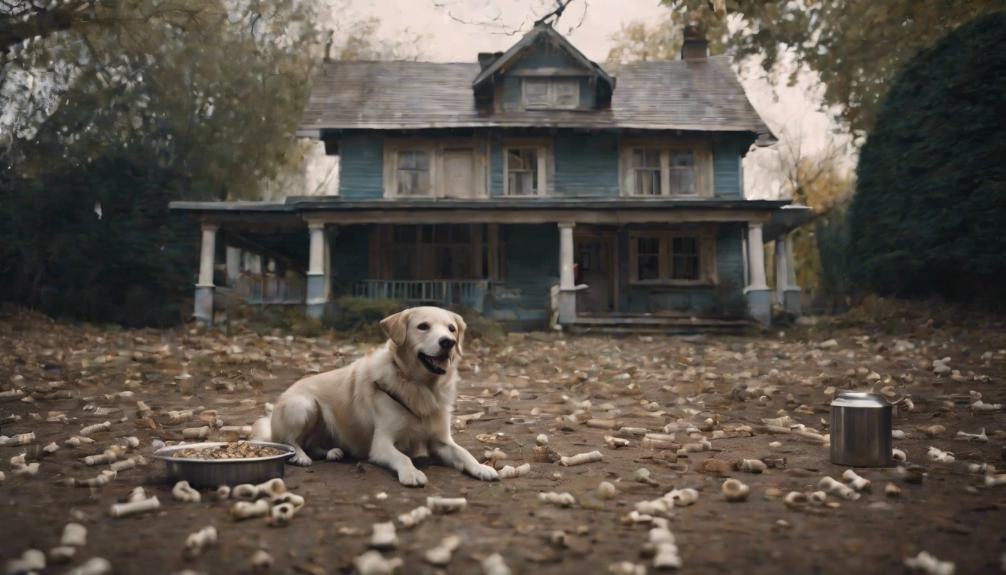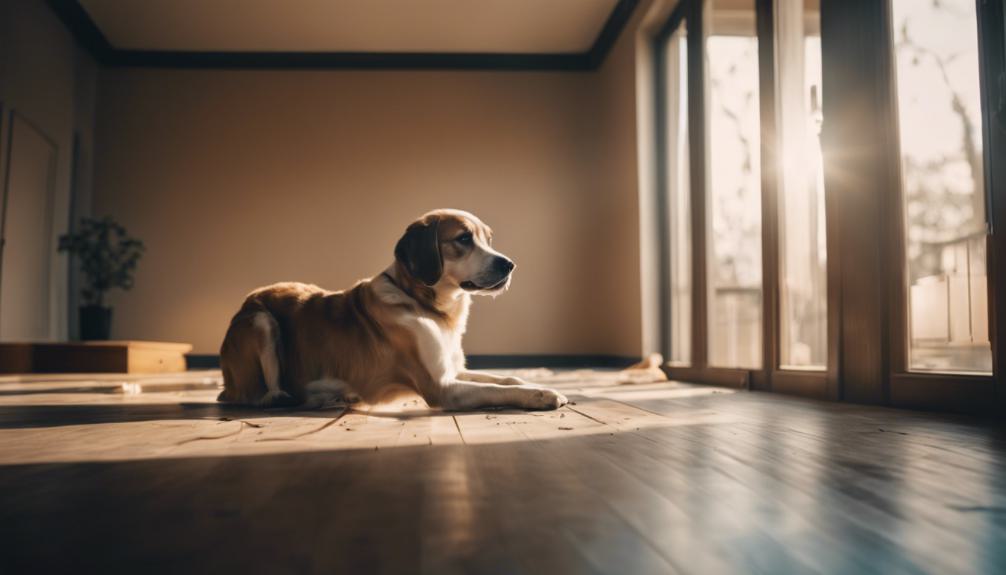Will Dogs Eat You If You Die? The Shocking Truth
If you unexpectedly pass away, your dog’s survival instincts may lead them to scavenge. Factors like the taste of blood, inherited from their wolf ancestors, can trigger such behavior. They might show signs of confusion, panic, and frantic scavenging in distressing situations. This instinctual response, grounded in primal needs, can cause them to target certain body parts. Despite having regular access to food, dogs might still scavenge due to a mix of hunger and survival instincts. Remember, your furry friend’s behavior is a result of their deep-rooted instincts and should be understood in that light.
Factors Influencing Canine Consumption
When contemplating factors influencing canine consumption of their deceased owners, the taste of blood can trigger eating behavior in dogs when faced with the lifeless body. Dogs, driven by survival instincts inherited from their wolf ancestors, may resort to scavenging behavior when food is scarce. This behavior of the animal, while alarming to humans, stems from a primal need for sustenance.
In forensic studies, it has been observed that dogs may initially display behaviors such as licking and nudging before progressing to consuming the body of their deceased owner. The animal’s instinctual drive to feed on flesh in the absence of food can lead to frantic behavior, including biting. Comprehending the natural survival instincts of dogs sheds light on the complex and sometimes unsettling behavior exhibited in such situations.
Psychological Responses in Dogs
The psychological responses of dogs to discovering their deceased owners can range from confusion to frantic scavenging behavior. When a dog encounters its unconscious owner, it may initially exhibit signs of panic and confusion, attempting to help in some way.
However, as time passes and the owner remains unresponsive, the dog’s survival instincts might kick in, leading to more frantic behavior such as licking, nudging, and even biting. Forensic experts suggest that the scavenging behavior displayed by dogs towards their deceased owners is more likely a result of psychological distress and survival instincts rather than intentional actions.
This behavior is often triggered by a state of panic rather than a deliberate intention to consume the deceased owner.
Role of Hunger and Survival Instincts

Despite the availability of regular dog food, dogs have been observed scavenging on their deceased owners, indicating a complex interplay between hunger and survival instincts in such distressing situations. When faced with the passing of their human companion, a dog’s innate hunger and survival instincts can lead to scavenging behavior.
This behavior can manifest differently between indoor and outdoor settings, with indoor scavenging often targeting the face and head, while outdoor scavenging focuses on nutrient-rich organs. Forensic examiner Markus Rothschild suggests that the taste of blood may trigger this behavior, rather than a deliberate desire to consume.
Even with access to dog food, the primal instincts of a dog can override their usual diet, showcasing the raw nature of their survival mechanisms in such challenging circumstances.
Cases of Dogs Eating Deceased Owners
In distressing situations where their human companions have passed away, dogs have been documented consuming the remains of their deceased owners in various case studies. Some instances detailed in forensic science journals reveal the heartbreaking reality of pets, like Labradors, eating from the unconscious bodies of their deceased owners. This scavenging behavior, while unsettling, underscores the strong comprehension instincts ingrained in dogs from their wolf ancestors.
National Geographic has reported on multiple cases where dogs rely on their deceased owners for sustenance, a stark reminder of the animal scavenging tendencies that can surface in extreme circumstances. Insight into these behaviors sheds light on the complex relationship between dogs and their deceased owners, offering insights into the depths of canine loyalty and instinctual responses to dire situations.
Understanding Canine Scavenging Behavior

Exploring canine scavenging behavior reveals the primal instincts deeply ingrained in dogs, shedding light on their survival mechanisms and ancestral ties to wild wolves. When a dog’s owner passes away, the dog’s scavenging behavior may be triggered by the taste of blood, leading them to consume flesh, even if food is available.
Research indicates that dogs may begin eating their deceased owner within a day, focusing on nutrient-rich organs when scavenging outdoors and targeting the face and head when indoors. Surprisingly, there’s no direct correlation between how a dog is typically treated and their inclination to scavenge on their deceased owner. This behavior highlights the innate instincts of dogs and their ability to survive in the absence of their caretaker.
Frequently Asked Questions
Would My Dog Eat Me if It Was Starving?
If your dog was starving, survival instincts might lead it to consume flesh, including yours. Research suggests dogs may resort to this behavior when faced with extreme hunger. It’s a shocking possibility to ponder.
How Long Will Cats Wait to Eat You?
Cats may start consuming remains within 24-48 hours of death, with some nibbling as the body cools. Their scavenging behavior varies. Instances of cats eating deceased owners have been reported. Survival instincts may drive cats, like dogs, to eat human remains.
Can Dogs Comprehend Death?
Dogs may not fully grasp death but can sense changes in your body. Their reactions vary based on temperament and past experiences. Survival instincts might lead to scavenging. Dogs’ behavior towards death mixes confusion, panic, and survival.
Would a Dog Eat a Dead Animal?
If you die, a dog might eat a dead animal out of desperation. Dogs, when hungry, may resort to consuming flesh for survival. Understand that it’s a natural instinct for them to seek food.
Conclusion
In summary, while it’s rare for dogs to consume their deceased owners, it can happen under specific circumstances. Factors like hunger, survival instincts, and psychological responses play a role in this behavior.
Grasping canine scavenging behavior is vital in preventing such occurrences. Remember, your furry friend may be loyal and loving, but they also have instincts that can lead to unexpected actions in extreme situations.

